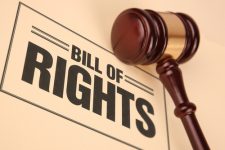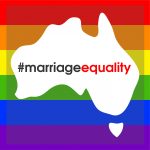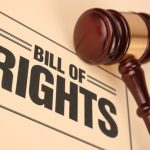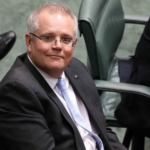A Bill of Rights Would Protect All Freedoms, Not Just Religious Ones

Philip Ruddock’s Religious Freedom Review closed for submissions on February 14. And the review’s expert panel has decided not to publish the submissions it’s received, until it reports its findings to the prime minister on 31 March 2020.
Malcolm Turnbull announced the review last November, in response to the concerns of his colleagues and “No” voters over same-sex marriage laws. The aim of the review is to ascertain whether Australian laws adequately protect religious freedoms.
Last week, Fairfax Media reported on a review submission that spruiks the sort of proposals many commentators have been fearing. The document was produced by Christian legal think tank Freedom for Faith, which is made up of representatives from a range of major churches.
A charter of religious rights
The Freedom for Faith submission recommends that a Religious Freedom Act be established that would enshrine religious freedoms in the federal law and extend existing religious exemptions already afforded to churches to areas such as employment.
The laws would allow church-run organisations to choose who they employ or terminate based on the values of their faith. And these provisions would apply to an employee who enters into a same-sex marriage following its recent legalisation.
“The most important issue for Christians is not the freedom to discriminate, but the freedom to select on the basis of religious belief,” wrote submission author Sydney University professor Patrick Parkinson.
The professor added that the “freedom to take adverse action against an employee,” due to incompatible conduct, is also a priority.
The act would supersede state and territory anti-discrimination laws, under the provisions of section 109 of the Australian constitution. And the authors of the report outline that it would “provide a way of balancing rights and freedoms without having a charter of rights.”
The need to protect all rights
“The establishment of this religious freedoms review provides an opportunity for a debate to be had between those who wish to discriminate in the name of religion and those who believe in broad anti-discrimination laws,” said NSW Council for Civil Liberties (NSWCCL) president Stephen Blanks.
The civil libertarian pointed out to Sydney Criminal Lawyers® that his organisation’s review submission recommends the establishment of a constitutionally-enshrined bill that will protect all rights, rather than simply focusing on religious ones.
Current Australian religious protections
The NSWCCL submission was prepared by committee member Dr Martin Bibby. The document outlines that Australia has agreed to protect religious freedom, along with all other rights, under the international treaties it has adopted, such as the International Covenant on Civil and Political Rights.
Section 116 of the Australian constitution provides some protection to religious rights. However, as Dr Bibby explains these provisions only apply to federal laws and merely protect religious observance, not religious belief or speech.
Currently, an individual can make a complaint about an issue relating to any human right enshrined in international law to the Australian Human Rights Commission (AHRC).
And any unresolved complaints concerning sex, disability, race or age can then be taken to the federal courts. However, disputes that haven’t been resolved that involve religious rights can’t be taken to a courtroom.
This is due to the fact that religious rights aren’t enshrined in Australian domestic laws in the same way that the other rights areas are. For example, the rights of people with disabilities are protected under the Disability Discrimination Act 1992.
And while all state and territories, except for NSW, have laws that protect against discrimination on religious grounds, these vary between jurisdictions.
So, according to Dr Bibby, it’s up to the expert panel to consider whether these limited provisions are enough to protect human rights concerning religion.
Protecting all under the law
“To privilege religious rights over others would provide the likelihood of serious abuses,” the report continues. So, what the NSWCCL recommends is that an Australian bill of rights be established.
Such a bill would ensure that all human rights listed in the various international instruments would be protected under domestic laws.
A bill of rights would also provide that all Australian legislation and policies are consistent with human rights standards. So, under a national rights act, any laws that were found to breach particular rights would be sent back to parliament to be revised.
The NSWCCL is calling for a constitutionally entrenched charter of rights and freedoms. And the report suggests that the nation could follow the path taken in Canada, where a statutory bill of rights was initially passed with a view that it would eventually be enshrined in the nation’s supreme law.
As Mr Blanks explained in December one right shouldn’t be singled out above all others. “They need to be protected as a whole, because they do compete against each other on occasions.” And a bill of rights would provide a mechanism that would serve to balance these competing rights.
Secondary recommendations
However, if the Ruddock expert panel decides not to throw its weight behind a full bill of rights, the NSWCCL have a number of other recommendations.
The council suggests that provisions be put in place to protect freedom of speech, both for and against religion, as the right to assert religious beliefs must be balanced with the right not to assert them.
Another recommendation is that federal, state and territory laws protecting against discrimination on religious grounds should be made uniform across all jurisdictions. And federal and state laws should also ensure the right to practise a religion, as long as it doesn’t cause harm.
The submission details the case of a US baker who refused to make a cake for a same-sex marriage celebration. In cases like this, the NSWCCL doesn’t recommend that religious exemption laws be created, but rather people should apply for an exemption at the AHRC on a case-by-case basis.
And lastly, the NSWCCL recommends that laws protecting against vilification on religious grounds be enacted, along the same lines as laws that protect against racial vilification.
Time for a broader conversation
Currently, Australia is the only democratic western nation not to have a bill guaranteeing its citizens’ rights under the law. Such a bill might have prevented some of the laws that have been passed of late in the name of counterterrorism and organised crime that have eroded citizens’ civil liberties.
The religious freedom debate could be a time to consider more solid rights protections for all Australians under the law.
However, with Liberal stalwart Philip Ruddock steering the ship, many are predicting that conservative Christians within that party will gain the religious exemptions they’re pushing for.
But some are more optimistic. “It is not unhealthy to have the debate,” Mr Blanks said, “and hopefully the Australian community will be strongly on the side of anti-discrimination.”







